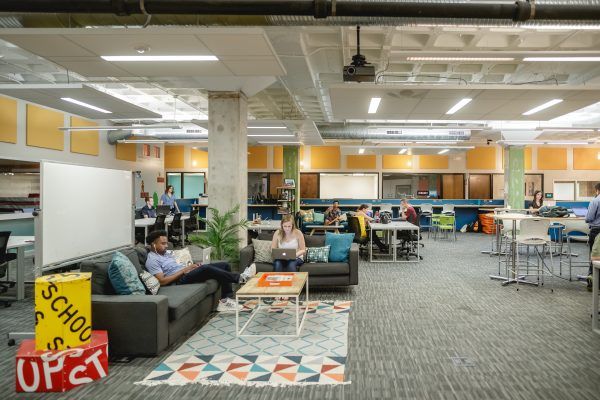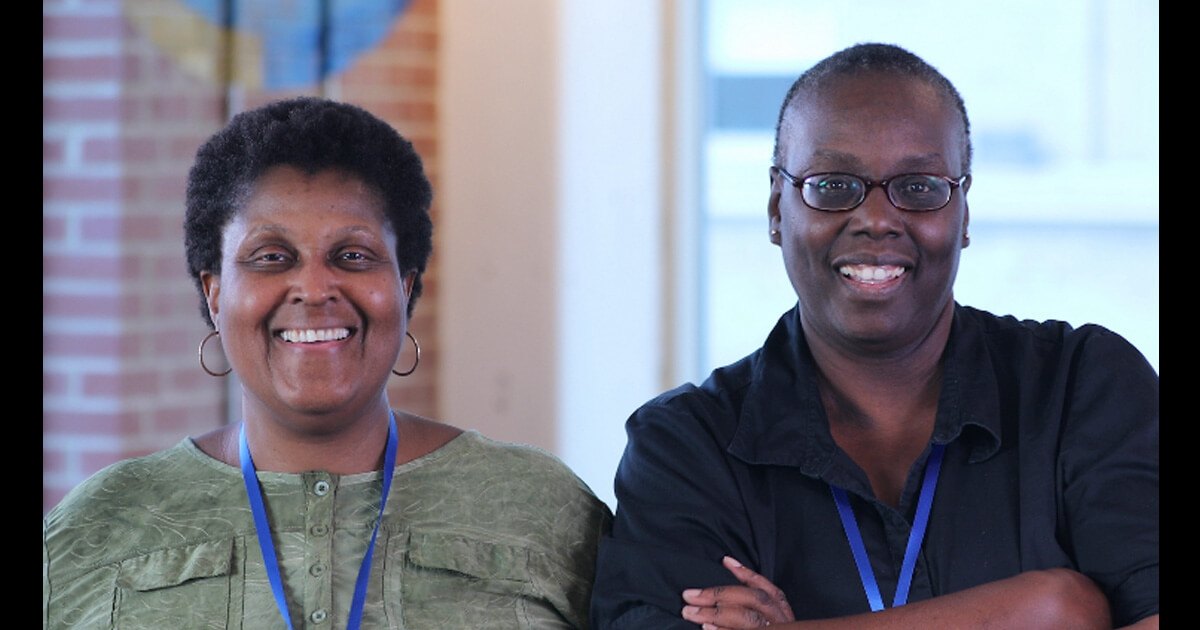As a young girl, Sonja Ebron, a North Carolina native, remembers watching the development of Research Triangle Park and the growth of the local tech scene, and wanting to be a part of the ecosystem. With a PhD in electrical engineering, Ebron spent some time in academia, but she continued to feel a pull towards entrepreneurship.
She co-founded Courtroom5 in 2017 with Debra Slone as a way for people to have the tools to represent themselves in civil cases without a lawyer. “We both had experiences where we were having to fight a lawyer in court without the benefit of a lawyer on our side,” Ebron said. “It was very difficult even for us, fairly educated folks, to navigate the very arcane procedures of a civil claim.”
Over the past decade, North Carolina’s tech scene has experienced a boom. According to the Charlotte Observer, over a five year period the city added over 117,000 tech jobs. The state as a whole ranked third in the nation in 2019 in tech job growth, according to the Research Triangle Regional Partnership, an economic development organization in the area. The number of jobs has gone down during the pandemic, but there are signs that things may be on the mend, with open tech roles at a four month high across the state.
But in North Carolina, like other tech hubs, company success has varied amid the economic hardship brought on by the COVID-19 pandemic. As technologists continue to work from home and in isolation, local organizations have stepped in to make sure entrepreneurs and companies still have access to resources and networking opportunities.

Courtroom5 is one of the companies that has found success in the economic downturn, as more users have searched for information on topics like foreclosure, bankruptcy, and debt collection — all of the difficult issues that have come up for countless Americans navigating the impacts of the pandemic. Utilizing the resources it gained from participating in the Google for Startups Black Founder Exchange, as well as local organizations like NC Idea and The Council for Entrepreneurial Development, Courtroom5 was ready to meet its customer’s needs head on. As a member of American Underground, a tech hub with Google for Startups, Ebron and her team have been able to participate in virtual panels that include pandemic related topics such as PPP loans and mental health management.
Adam Klein, American Underground’s chief strategist, said the company had more than 300 members prior to the pandemic. Members typically raise between $30-$50 million each year. Still, at the beginning of the pandemic American Underground, like many businesses, saw members dropping out all together or reducing their packages. To combat this, members were offered rent at a 50 percent discount in April and May. According to Klein, their membership numbers have remained stable as a result of measures such as this and people increasingly seeking out community as the pandemic rages on.

“We’re seeing people rejoin as people I think get tired of work from home and really long to be in community with other people,” Klein said of the last two months. Companies such as Courtroom5 can participate in American Underground’s Slack channels, virtual workshops, and “tiny happy hours” where about five founders can network in person while socially distancing.
Local tech hub BLKTECHCLT pivoted to online events in February in anticipation of the pandemic as well. Since then, the organization has catered to early career Black technologists and those interested in making a pivot. “The workforce development portion of our company started to thrive because now people who weren’t able to go to work, were able to start thinking about other career paths,” Enovia Bedford, BLKTECHCLT’s co-founder said. The company partnered with Flatiron School to offer virtual training for subjects such as coding and cyber security. They also offer information on job opportunities for those who are looking for employment. The Plug’s founder, Sherrell Dorsey, is co-founder of BLKTECHCLT.
Bedford said Charlotte is still finding its footing as a tech hub and hasn’t had the resources that larger tech cities have been afforded during this time. Still, local organizations and tech leaders are stepping up to support one another.
Klein says founders who have found success launching companies in North Carolina have in many ways already been set up to succeed, even in an economic downturn. According to him, a majority of American Underground’s members have seen business remain stable or only drop about 10 percent. “This area doesn’t have a ton of venture funding so people have had to build companies that have real revenue models,’ he said.
The pandemic hasn’t been easy for entrepreneurs and tech workers in the state, and the days after it’s over will require even more forward thinking strategies from ecosystem leaders like Bedford and entrepreneurs like Ebron. But the state’s bounce back in tech job growth and a slew of strong companies should make the path forward more visible.
This story is possible thanks to support from the Ewing Marion Kauffman Foundation, a private, nonpartisan foundation that works together with communities in education and entrepreneurship to increase opportunities that allow all people to learn, to take risks, and to own their success. For more information, visit www.kauffman.org and connect at www.twitter.com/kauffmanfdn and www.facebook.com/kauffmanfdn.








